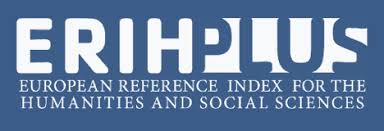№2, 2024
The article is dedicated to the intersection of language and technology, a crucial topic in our contemporary world. The rapid advancements in Information Communication Technologies present both new opportunities and challenges for national languages. As information technologies permeate various aspects of our lives, encompassing communication, the vitality and progression of language occur within this technological landscape. To delve into these dynamics, the article examines the case of the Azerbaijani language. The research is bifurcated into two key areas. The first addresses obstacles hindering the language from fully leveraging Information Communication Technologies capabilities, while the second explores limitations impeding Information Communication Technologies from effectively utilizing the language’s potential. The article provides a thorough analysis of the issues identified in both aspects and proposes solutions to overcome these existing challenges (pp.3-13).
A Manifesto for Open Language Technology. 2024 https://openlt.org/
Alguliyev R.M., Aliguliyev R.M., Jafarov Y.M., Yusifov F.F., Gurbanova A.M. (2021). From a cosmopolitan e-govenrment to a national e-govenrment: prospects for creating Azerbaijani language services in a virtual environment // Information society problems, , 12(2), 3–25 (in Azerbaijani)
Begay, W.R. (2013). Mobile apps and indigenous language learning: New developments in the field of indigenous language revitalization [Masters Thesis, University of Arizona].
https://www.semanticscholar.org/paper/Mobile-apps-andindigenous-language-learning%3A-NewBegay/2d2975a469b614e4e1ba4eed6c1e1e40b4eda60f
Bell, J. (2013). Language attitudes and language revival/survival. Journal of Multilingual and Multicultural Development, 34(4), 399–410. https://doi.org/10.1080/01434632.2013.794812
Bow, C. (2021). Entanglements of digital technologies and Indigenous language work in the Northern Territory [Doctoral, Charles Darwin University and the Australian National University]. http://hdl.handle.net/1885/233083
Dalvit L (2010). Multilingualism and ICT Education at Rhodes University: An Exploratory Study.Unpublished Ph.D. thesis, Rhodes University.
Decree of the President of the Republic of Azerbaijan on a number of measures related to ensuring wider use of the Azerbaijani language in an electronic space. 2018 https://president.az/articles/29492
Djite P (2005). From Liturgy to Technology: Modernising the Languages of Africa. Language Problems and Language Planning, 32(2), 133-152.
Dror IE (2008). Technology enhanced learning: The good, the bad and the ugly. Pragmatis and Cognition: 16(2), 215-223.
Elliot, R. (2021). Technology in Language Revitalization. In J. Sallabank & J. Olko (Eds.), Revitalizing Endangered Languages: A Practical Guide (pp. 297–311). Cambridge University Press. https://doi.org/10.1017/9781108641142.008
Genee, I. (2018). The Blackfoot Language Resources and Digital Dictionary project: Creating integrated web resources for language documentation and revitalization. Language Documentation & Conservation, 12, 274–314. Heritage Languages and the Well-being of Speakers, 2023.
https://www.linguapax.org/en/linguapax-review-en/
https://www.azstat.org/MetaDataG/
Jafarov, Y.M. (2016). Issues of geoonomastics and human geography // Materials of the Fourth International Scientific Conference of Young Researchers (Qafqaz University) dedicated to the 93rd anniversary of the national leader Heydar Aliyev, (Baku), p. 158 (in Azerbaijani)
Jafarov, Y.M., Gasimova R.T. (2020). Some problems in the design of domain names with the Azerbaijani alphabet on the Internet. Journal of Information Society Problems, 11(1), 64-74 (in Azerbaijani)
Johnson, G. M. (2016). Technology use among Indigenous adolescents in remote regions of Australia. International Journal of Adolescence and Youth, 21(2), 218–231. https://doi.org/10.1080/02673843.2013.823553
Junker, M.O. (2018). Participatory action research for Indigenous linguistics in the digital age. In insights from practices in community-based research: from theory to practice around the globe, 319. De Gruyter Mouton. https://doi.org/10.1515/9783110527018-009
Koole, M., & Lewis, K. (2020). Mobile learning as a tool for indigenous language revitalization and sustainability in canada: framing the challenge (pp. 520–532). https://doi.org/10.4018/978-1-7998-0423-9.ch028
Kurdi, M.Z. (2017). Natural Language Processing and Computational Linguistics 2: semantics, discourse, and applications / M.Z.Kurdi. ISTE-Wiley, 318 p.
Quintrileo, E.J. (2019). Technology’s role in Mapudungun language teaching and revitalization. AlterNative: An International Journal of Indigenous Peoples, 15(3), 205–216
Li, J., Brar, A., & Roihan, N. (2021). The use of digital technology to enhance language and literacy skills for Indigenous people: A systematic literature review. Computers and Education Open, 2, 100035. https://doi.org/10.1016/j.caeo.2021.100035
Mahmudov M.A. (2002). System of formal text analysis. Baku, “Elm”, pp. 39-40 (in Azerbaijani).
Mahmudov, M.A. (2013). Computer linguistics / M.A. Mahmudov. - Baku: Science and Education, (in Azerbaijani)
Microsoft Corporation. 2004. “Microsoft Enables Millions More to Experience Personal Computing Through Local Language Program.” PressPass - Information for Journalists, March 16. http://www.microsoft.com/presspass/press/2004/mar04/03- 16LLPPR.asp
Nabiyev, V.V. (2013). Yapay Zekâ: Problemler, Yöntemler, Algoritma / V.V.Nabiyev. – Seçkin Yayıncılık, 792 s. Nabiyev, V.V. Artificial Intelligence: Problems, Methods, Algorithm / V.V.Nabiyev. – Seçkin Publishing, 792 (in Turkish)
Osborn D.Z. (2010). African Languages in a Digital Age: Challenges and Opportunities for Indigenous Language Computing. Cape Town: HSRC Press.
Patton, J. (2018). New app hopes to revitalize, teach Indigenous languages. Global News. Retrieved from https://globalnews.ca/news/4288160/indigenous-languageappwikwemikong- first-nation/
Soria, C. (2016). What is digital language diversity and why should we care? In J. Cru (Ed.), Linguapax Review 2016—Digital Media and Language Revitalisation. Linguapax International.
State Program 2013 on the use of the Azerbaijani language in accordance with the requirements of the time and the development of linguistics in the country in terms of globalization https://www.president.az/articles/7744





.jpg)









